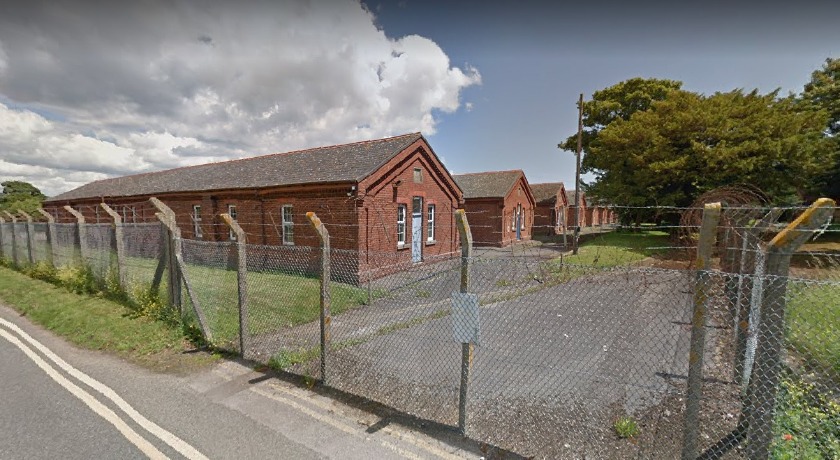 Church leaders from across denominations, including the Revd Claire Downing, Moderator of the United Reformed Church General Assembly, have written an open-letter to the Home Secretary about housing for people seeking asylum.
Church leaders from across denominations, including the Revd Claire Downing, Moderator of the United Reformed Church General Assembly, have written an open-letter to the Home Secretary about housing for people seeking asylum.
The full text of the letter is below:
Dear Secretary of State
Open letter: Asylum accommodation
We have watched with growing concern events unfold at Napier Barracks in Folkestone, Kent, and are extremely concerned about the welfare of asylum seekers housed across Ministry of Defence sites.
As you know, in the absence of safe and legal routes to apply for refugee status outside the UK, many have no choice but to make a dangerous and perilous journey to seek safety from conflict, persecution, and violence. After such a traumatic journey, having had to often spend time behind wire fences in refugee camps, it is simply insensitive to house people in such environments. In a global pandemic it is nothing short of irresponsible and risks the lives of residents and staff alike.
Even as a temporary measure, ex-military barracks are unfit for purpose and entirely inappropriate. Requiring members from different households to use and live in shared facilities greatly increases the risk of infection and residents cannot be held responsible for virus transmission rates when social distancing is not possible.
We are therefore calling for an immediate end to the use of military barracks as accommodation for those seeking sanctuary in the UK. It is not a fair or justified response to your legal duty to house asylum seekers who would otherwise become destitute. We understand it is the government’s intention to move all individuals in contingency accommodation into suitable dispersed accommodation as soon as reasonably practical. Can you therefore confirm that the Home Office will not expand the use of military barracks for contingency accommodation and whether the Government will set out a timeline for their closure.
We do appreciate the unprecedented pressures the government is facing to provide accommodation to those who are awaiting a determination of their status, following the welcome decision not to evict people from asylum accommodation through a period of the pandemic. However, a long term sustainable action plan has to be put in place to secure suitable, dignified dispersal accommodation. Steps to speed up accurate processing of asylum applications will also reduce pressure on the system.
Our shared faith as signatories to this letter, leads us to view all human beings as equal and deserving of respect, dignity and welcome. We have witnessed at first hand, the generous welcome provided by civic and faith groups to those seeking protection. When asylum seekers are housed within communities, it allows for better integration and access to support services. Asylum seekers are often no longer seen as “other” but as neighbours and friends. It is in this environment that asylum seekers physical and mental wellbeing can be protected, and they are also able to better engage with their asylum application.
We ask that the government continue to work constructively with local authorities, devolved administrations and support organisations to secure sufficient and appropriate dispersal accommodation in local communities and to end the use of barracks as a matter of urgency.
We look forward to hearing your response to the issues raised.
Yours sincerely,
The Revd Clare Downing, Moderator of the General Assembly of the United Reformed Church
The Bishop of Durham, The Rt Revd Paul Butler
Cardinal Vincent Nichols, Archbishop of Westminster and President of Churches Together in England
Rt Revd Paul McAleenan, Lead Bishop for Migrants and Refugees, Catholic Bishops’ Conference of England and Wales
The Bishop of London, The Rt Revd and Rt Hon Dame Sarah Mullally DBE
His Eminence Archbishop Angaelos, Coptic Orthodox Archbishop of London
Hugh Osgood, Free Churches President of Churches Together in England
Revd Dr Paul Goodliff BA MTh, General Secretary, Churches Together in England
The Bishop of Loughborough, The Rt Revd Dr Gulnar (Guli) Francis-Dehqani BA MA PhD
The Bishop Rt of Dover and the Bishop in Canterbury, The Rt Revd Rose Hudson-Wilkin
The Bishop of Bradwell, The Rt Revd Dr John Perumbalath Chair of Churches Refugee Network in Britain and Ireland
The Bishop of Bristol, The Rt Revd Vivienne Faull
The Bishop of Reading, The Rt Revd Olivia Graham
The Bishop of Croydon, The Rt Revd Jonathan Clark
The Bishop of Oxford, The Rt Revd Steven Croft
The Bishop of Worcester, The Rt Revd Dr John Inge
The Bishop of Southwark, The Rt Revd Christopher Chessun
The Bishop of Gloucester, The Rt Revd Rachel Treweek
The Bishop of Leeds, The Rt Revd Nicholas Baines
Pastor Agu Irukwu, Redeemed Christian Church of God, and Pastor Jesus House President of Churches Together in England
Most Revd Father Oluwole A Abiola, OBE, President, Council of African and Caribbean Churches UK
The Revd Richard Teal, President of the Methodist Conference 2020/2021
Mrs Carolyn Lawrence, Vice-President of the Methodist Conference 2020/2021
Dorothy Kendrick, President, Independent Methodist Connexion of Churches
Commissioner Anthony Cotterill, Territorial Leader for The Salvation Army in the UK and Republic of Ireland
The Revd Judith Morris, General Secretary, Baptist Union of Wales
The Revd Meirion Morris, General Secretary of the Presbyterian Church of Wales
The Revd Dan Yarnell, The Fellowship of Churches of Christ in Great Britain and Ireland
Image: Napier Barracks credit Google Maps
Published 16 February 2021




